Photo by Freepik
Mental Wellbeing
So lately I’ve been feeling a little frazzled. A little frayed at the ends. Like, the way I’m showing up is consistently inconsistent. One day I feel balanced, at ease, able to handle whatever curveball life throws at me. The next, I’m like an exposed nerve end: the slightest breeze leaves me reeling with discomfort and overwhelmed. See that woman in the picture above? This, my friends, is not what I look like right now! These are my telltale signs that I really, I mean REALLY, need to get back to the fundamental practices that improve my mental wellbeing. My mind is out of whack.
Did you know that your brain, just like your body, needs several key “nutritional ingredients” in order to be healthy, resilient, and to function optimally?
Your mind is one of the most powerful and influential players in your overall health. The research is clear: your mental health (that is, the way your mind is relating to both your internal and external world) directly affects your physical, relational, and emotional wellbeing.
The field of interpersonal neuroscience shows us that there are seven daily essential mental activities that our brains need in order to function at their best.* When we incorporate even a small serving of each of these mental nutrients into our day, we strengthen our brain’s ability to operate in a way that increases our experience of contentment, ease, resilience, and enjoyment.
I’ll have seconds of that! (OK, corny humor: a good sign my mind is starting to head in the right direction now!)
The Seven Essential Mental Nutrients
Research is clear: we need EACH of these mental nutrient categories to experience wellness. We can’t just pick and choose our favorites or invest only in what is most convenient for us. When we do that, our mental health suffers. You’ll notice some categories are easier for you to spend time in than others. That’s normal! The goal is to increase your willingness to spend at little bit of time daily in each of these seven areas in order to more consistently feel like you’re showing up as the best version of yourself.
FOCUS TIME
When we closely focus on tasks in a goal-oriented way, we take on challenges that make valuable patterns in the brain. This includes time at work, moving toward a personal goal, problem solving an important part of your life, or learning something new.
PLAY TIME
When we allow ourselves to be spontaneous or creative while playfully enjoying novel experiences, we help make new connections in the brain. Learn more about the surprising benefits of play HERE.
CONNECTING TIME
When we connect with other people, ideally in person, and when we take time to appreciate our connection to the natural world around us, we activate and reinforce the brain’s relational circuitry. This reinforces powerful protective factors for our mental and spiritual health.
PHYSICAL TIME
When we move our bodies generously and intentionally, we strengthen the brain’s chemical health while also improving our emotional and physical wellness. Want our fresh take on movement? Skip the exercise and try THIS instead.
TIME IN
When we quietly reflect internally, focusing on sensations, images, feelings and thoughts, we help to better integrate the brain. This can be through both formal or informal mindfulness practices. Or through intentional journaling, prayer, or reflection activities. Our go-to is the free 10-session meditation with Headspace. It’s the perfect 10 minute brain break.
DOWN TIME
When we are non-focused, without any specific goal, and let our mind wander or simply relax, we help the brain recharge. Many women really struggle with this category. We often associate our self worth with our level of productivity or feel anxious when we’re not doing something. However, taking a few minutes for intentional down time has huge mental health benefits.
SLEEP TIME
When we give the brain the rest it needs, we consolidate learning and recover from the experiences of the day. Getting quality and adequate sleep can be a real challenge, so we’ve pooled the best info to help you HERE.
Your Individualized Mental Nutrition Plan
And guess what? There’s a good deal of flexibility inherent in this mental nutritional model. There are no set amounts of time you have to spend in each brain enhancing category. Everyone is different, so our individual needs vary. And also, at different times in our lives we may find that we need more of one mental health nutrient than we needed before. The point is to become aware of the full spectrum of essential healthy brain activities and make sure that we are bringing the right ingredients into our mental diet on a daily basis, even if for just a short bit of time.
So my homework this week? Invest more evenly in my brain’s health and reintroduce the categories I’ve been neglecting lately: play, creativity, and connecting with the natural world are sounding pretty good right now!
Now, my friend, which mental nutrient activity do you want to incorporate into your daily routine? Share your hopes and strategies with us- we love learning from this community.
With love,
Cara
Team Luminary
Resources
*The Healthy Mind Platter was created by Dr. Daniel J. Siegel, Executive Director of the Mindsight Institute and Clinical Professor at the UCLA School of Medicine in collaboration with Dr. David Rock, Executive Director of the NeuroLeadership Institute.





